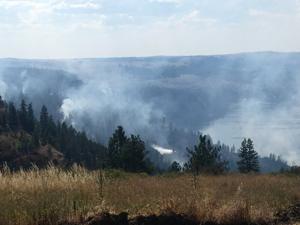Washington Democrats’ widest reaching climate change bill is dead

(The Center Square) – A cornerstone of Washington Democrats’ climate agenda is now officially dead in the state legislature, leaving the party’s green energy dreams in doubt.
Once considered the most ambitious climate legislation this session, House Bill 1099 would have written carbon (CO2) emission reduction into the state’s land use codes included in its Growth Management Act by 2034. Counties and cities would have been obligated to promote greenways, study CO2 emissions’ impact on underrepresented communities, and reduce competition between residential housing and parking developments. The bill applied to the state’s denser urban counties, namely those around the Puget Sound.
After passing the House in March, HB 1099 has spent the last week sitting in the Senate Transportation Committee. HB 1099’s primary sponsor, state Rep. Davina Duerr, D-Bothell, pronounced the bill dead on Monday in lieu of political support.
“I won’t rest until this bill passes,” Duerr said. “We need a plan to reduce greenhouse gas emissions, vehicle miles traveled and plan for climate resiliency.”
One climate bill of Duerr’s, House Bill 1280, which would have public facilities consider CO2 reduction in new construction, stands a chance of seeing a Senate vote after passing the House last month. That’s a small consolation for climate activists bent on seeing the state meet its 2050 goal of carbon neutrality.
The demise of HB 1099 leaves Washington Democrats holding a mixed bag of tax hikes and roadway expansions as their answer to combating climate change, two things conservatives and progressives alike have condemned.
Two transportation packages backed by House and Senate Democrats are exhibit A and B for critics of both. The $18 billion package from state Sen. Steve Hobbs, D-Lake Stevens, is seen as the one to pass this session. It includes taxes on housing, ride-hailing services, and buses progressives say will keep more cars on the road and more carbon emissions in the air. Its 9.8 cent gas tax increase has not done Hobbs any favors with conservatives concerned about their cost to businesses and commuters.
Hobbs’ plan is paid for by a trifecta of revenue streams aimed at lowering C02 emissions—a gas tax increase, a cap and trade program, and a low-carbon fuel standard. None have marshaled widespread support outside of the state legislature where the bulk of Democrats’ green energy investments this session will be limited to bolstering the state’s electric vehicle and ferry fleets.
The stakes are high as Washington’s C02 emissions have climbed steadily even while C02 emissions in the U.S. fell 5% during the last decade.
According to a comprehensive 755-page report released last September by the Intergovernmental Panel on Climate Change, Washington’s annual snowpack has declined by about 30% between 1955 and 2016.
In the North Cascades, the rate of decline has topped 56% since 1900. Those rates have sped up snow melts, the report shows, by about 20 days in 2002 compared to 1948. Earlier melts also threaten summertime stream flows critical to the state’s hydroelectric dams during peak summer energy demand.
Conversations about climate change have fallen along largely partisan lines in the Washington Legislature where Republicans have pushed for few solutions of their own and even fewer amounting to legislative action.
State Sen. Curtis King, R-Yakima, proposed planting more vegetation in freeway medians this month to capture CO2 while state Sen. Phil Fortunato, R-Auburn, claimed CO2 emissions are not substantial contributors to climate change based on low CO2 levels during World War II.
Researchers from Tennessee’s Oak Ridge National Laboratory concluded CO2 emissions continued to shoot up during World War II. Rising temperatures, they found, leveled off due to increased smoke and particulates blocking the sky.
State Sen. Keith Wagoner, R-Sedro Woolley, claimed without evidence this month that CO2 reduction would hurt the state’s environmental health, analogizing its climate goals to “a fit athlete” trying to get to 0% body fat.
Washington Democrats now have less than two weeks to go before the state legislature ajorns on April 25 with several more climate bills slated to see more testimony in that time.
Washington’s proposed cap and trade program, Senate Bill 5126, is up for a public hearing in the House Environment and Energy Committee on Wednesday at 8 a.m.
Disclaimer: This content is distributed by The Center Square
